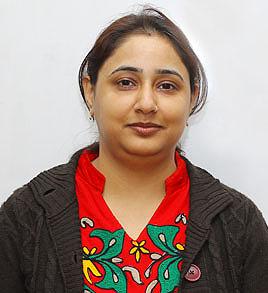The Role of Extracurricular Activities in Technical Student Development


Today’s environment is highly competitive as students are charged with the responsibility of excelling academically more so in STEM. Books, lectures, techniques are indeed very important in the academic achievements of the technical students, but too often people forget about the importance of extra-curricular activities. In this case, extracurricular activities do not only supplement the educational process but also are an important step towards creating successful, creative, and adaptive members of the future working environment.
Imagine a student named Alex, an engineering student with the passion for robotics. Alex spends many hours in the lab to design and code systems. Although Alex is dedicated to academics, but he might miss essential skills such as teamwork, leadership, and communication from group projects and other university-related activities. Such activities serve as a valuable reminder to counterbalance rigours of technical education. They give students an opportunity to follow their passion in subjects that are not necessarily linked to their concentration area. Like for Alex, improving the learning experience as students, where he is not compelled to study only the subjects they are trained to do. Such opportunities include involvement in robotics club or being in a coding competition team can provide Alex to enhance his learning experience making his academic journey more productive.
Nowadays employers are not only looking for technical skills but they look for individuals who can solve interpersonal issues and demonstrate good problem-solving skills. Technical students can cultivate these qualities through participation in different clubs and organisations. Consider a science student who is pursuing a computer science degree but joins a debate club. Debate helps her to improve her public speaking skills, logical thinking, and sufficient experience in creating and delivering well-reasoned arguments. These skills come in handy when working in a project where she might need to share information to people with no technical background or when working in a diverse group. These experiences are important in preparing students to face real-world challenges, when they will need to lead projects, meet deadlines, and work cohesively with others. Participating in competitions allow students to interact with leaders in the industry, attend workshops and get a chance to represent himself at diverse forums.
Technical fields indulge in innovations and creativity and extracurricular activities can be a perfect ground to breed these qualities. The idea competitions such as hackathons, innovation challenges, and maker fairs help students to look at problems differently and use their scientific techniques innovatively. This not only builds her professional knowledge but also encourages coming up with unique ideas, working in teams and the feeling of having achieved something. And it is through these activities that students are able to define and determine their interests and probable areas of concentration
The extra curricula activities are a chance through which the theoretical learning is can be taken through real life practical experiences. This kind of experience is very helpful in improving a student’s experience and prepare them for real life situation. These skills are useful in his future job hence give students a competitive edge compared to his counterparts in the job market.
Coping with stress and demanding academic load has negative impact on students’ state of mind and general health. Gardner emphasises that students need a break from academic learning anyway; club participation helps to give students a sense of identity and belonging. Any activity for a group – sports, music, arts or volunteering – is always beneficial if a student decides to join it.
As globalisation increases, being culture sensitive or able to work in cross-cultural settings is very important. Students who act in multicultural organisations like the international students body or learn other foreign languages are better poised for the global market. Like enrolment in an exchange programme with another country would afford a student an opportunity to experience or learn various cultures and ways of doing things. I believe this is a wonderful opportunity towards improving on flexibility, understanding and being open- minded-an essential competency in the global workplace.
Extracurricular activities supplements academic learning, develops important soft skills, offers hands-on opportunity, and improves the wellbeing of an individual. Organising various interesting and effective academic clubs for the technical students would help them to be more creative and develop themselves – and be ready to face all the new opportunities and difficulties of the today’s world. Educators and mentors should make sure that learners engage in extracurricular activities because it is very important for their overall development. In this way, we not only provide an added value to their learning process, but also contribute towards cultivating future leaders capable of perceiving and solving multifaceted problems in a complex world, who not only are technically competent and ready to meet modern challenges, but are also compassionate and creative.
It is evident that all the extra-curricular activities including the coding club, sports, community service and the arts are extremely crucial in moulding the all-round technical student. They are the place where knowledge and ideas come together, students get trained to develop their skills based on teamwork, creativity, and practical experience in order to build up a successful and a happy future for themselves.
Authored By

Dr. Shilpa Mahajan
Associate Professor
Department of CSE
The NorthCap University














